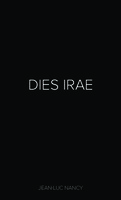Dies Irae
| dc.contributor.author | Nancy , Jean-Luc | |
| dc.contributor.editor | Condello, Angela | |
| dc.contributor.editor | Grassi , Carlo | |
| dc.contributor.editor | Philippopoulos-Mihalopoulos , Andreas | |
| dc.date.accessioned | 2019-08-14 14:28:55 | |
| dc.date.accessioned | 2020-04-01T10:10:11Z | |
| dc.date.available | 2020-04-01T10:10:11Z | |
| dc.date.issued | 2019 | |
| dc.identifier | 1005302 | |
| dc.identifier | OCN: 1112069384 | en_US |
| dc.identifier.uri | http://library.oapen.org/handle/20.500.12657/24806 | |
| dc.description.abstract | What does it mean to judge when there is no general and universal norm to define what is right and what is wrong? Can laws be absent and is law always necessary? This is the first publication of an English translation of Jean-Luc Nancy’s acclaimed consideration of the law’s most pervasive principles in the context of actual systems and contemporary institutions, power, norms, laws. In a world where it is clearly impossible to imagine the realization of an ideal of justice that corresponds to every person’s ideal of justice, Nancy probes the limits of legal normativity starting from this problem. Moreover, the question is asked: how can legal normativity be legitimized? A legal order based on performativity and formal validity is questionable and forces below that of juridical normativity are at the heart of Dies Irae’s critical inquiry. This leads inevitably to the processes of inclusion and exclusion that characterize contemporary juridical systems and those issues of identity, hostility and self-representation so central to contemporary European and global political and legal debates. | |
| dc.language | English | |
| dc.subject.classification | thema EDItEUR::C Language and Linguistics::CB Language: reference and general::CBX Language: history and general works | en_US |
| dc.subject.classification | thema EDItEUR::Q Philosophy and Religion::QD Philosophy | en_US |
| dc.subject.classification | thema EDItEUR::Q Philosophy and Religion::QD Philosophy::QDT Topics in philosophy::QDTJ Philosophy: metaphysics and ontology | en_US |
| dc.subject.classification | thema EDItEUR::Q Philosophy and Religion::QD Philosophy::QDT Topics in philosophy::QDTK Philosophy: epistemology and theory of knowledge | en_US |
| dc.subject.classification | thema EDItEUR::J Society and Social Sciences::JB Society and culture: general::JBF Social and ethical issues::JBFV Ethical issues and debates | en_US |
| dc.subject.classification | thema EDItEUR::L Law::LA Jurisprudence and general issues::LAB Methods, theory and philosophy of law | en_US |
| dc.subject.other | law | |
| dc.subject.other | judgement | |
| dc.subject.other | justice | |
| dc.subject.other | normativity | |
| dc.subject.other | Kant | |
| dc.subject.other | reason | |
| dc.title | Dies Irae | |
| dc.type | book | |
| oapen.identifier.doi | 10.16997/book36 | |
| oapen.relation.isPublishedBy | 2725c638-53f3-4872-9824-99c3555366f3 | |
| oapen.relation.isFundedBy | 9e6c8be9-9f16-4ab9-a630-f368a5b55dc1 | |
| oapen.relation.isbn | 9781912656301; 9781912656325; 9781912656332 | |
| oapen.pages | 107 | |
| oapen.place.publication | London | |
| oapen.identifier.ocn | 1112069384 |

